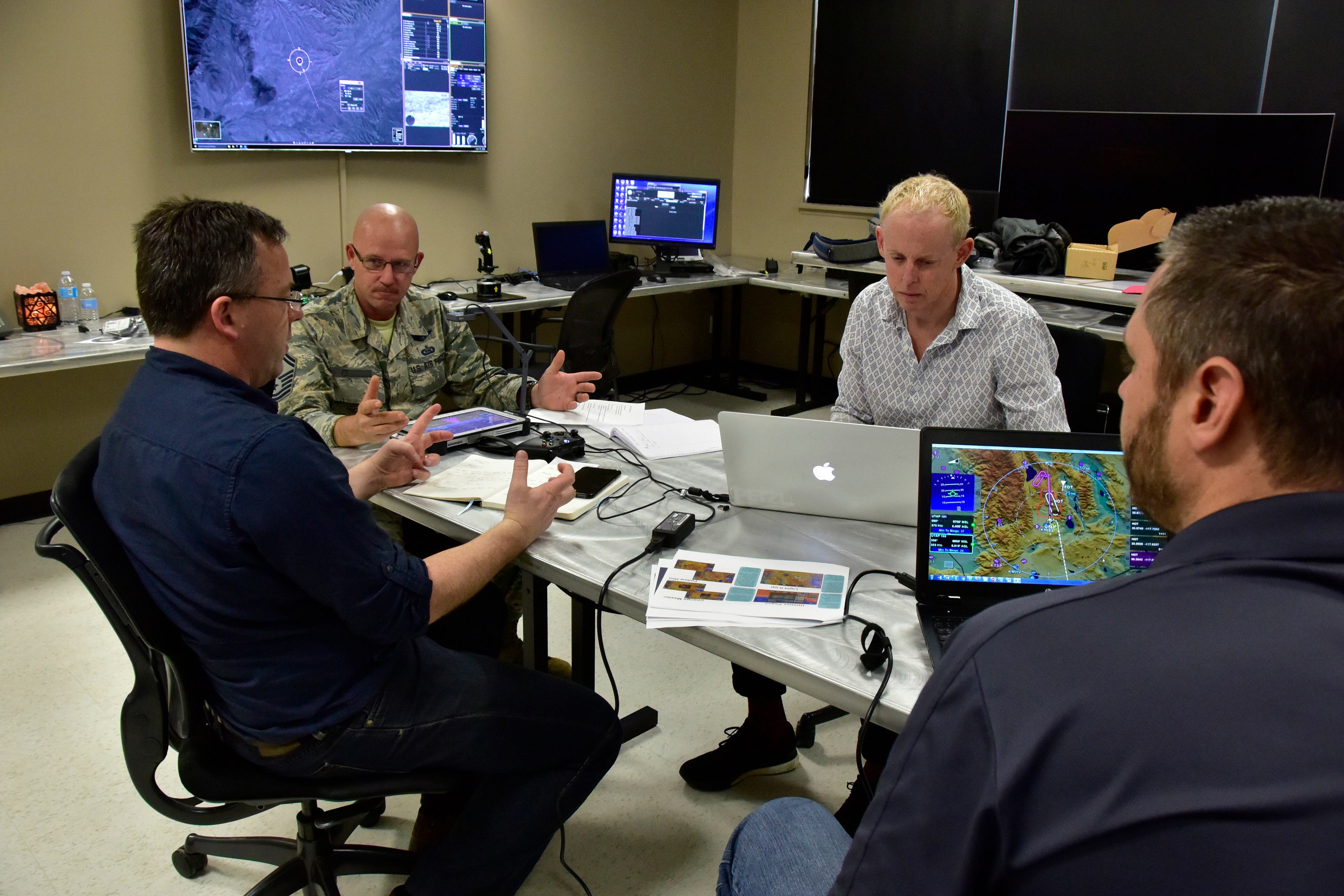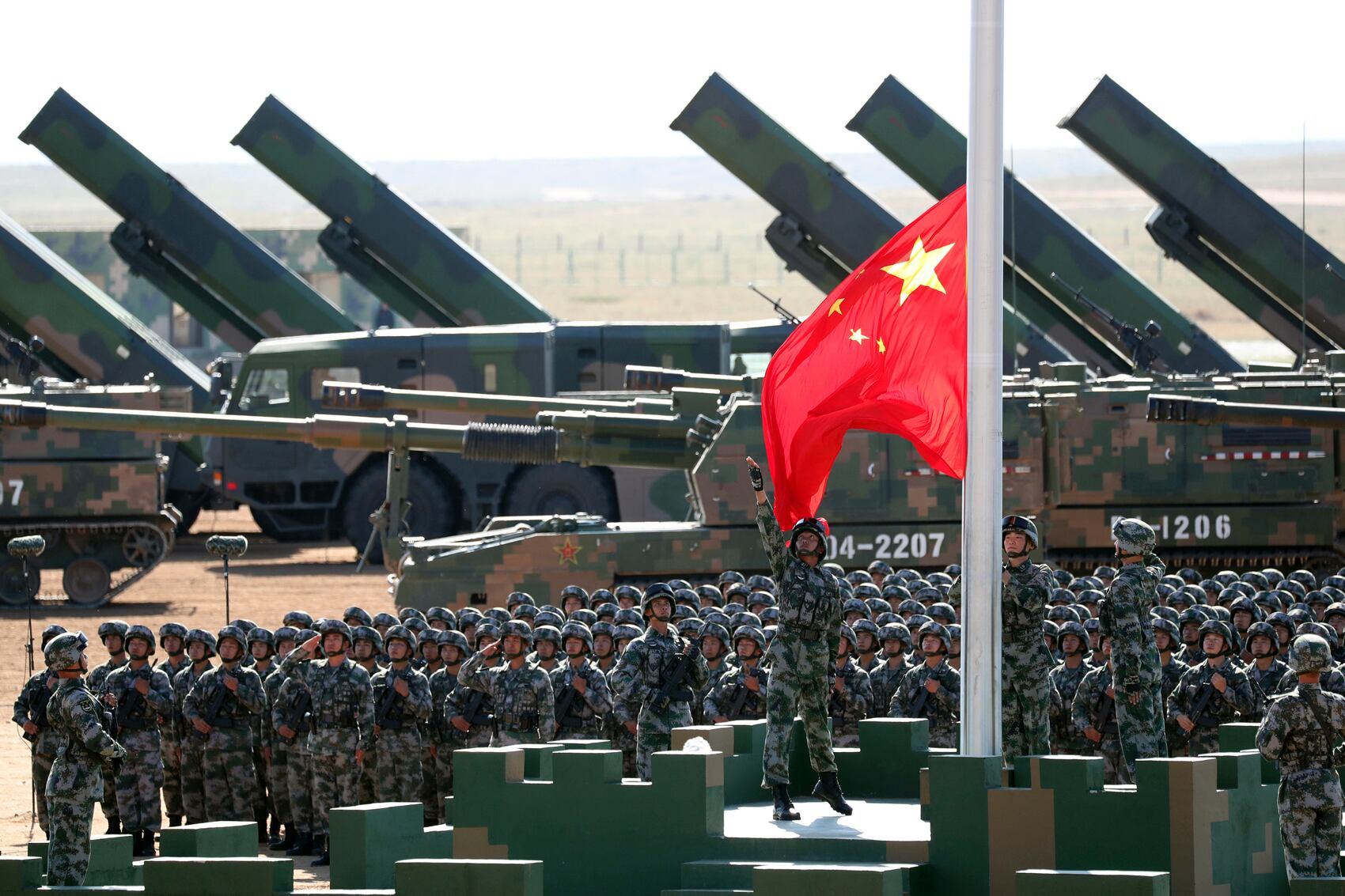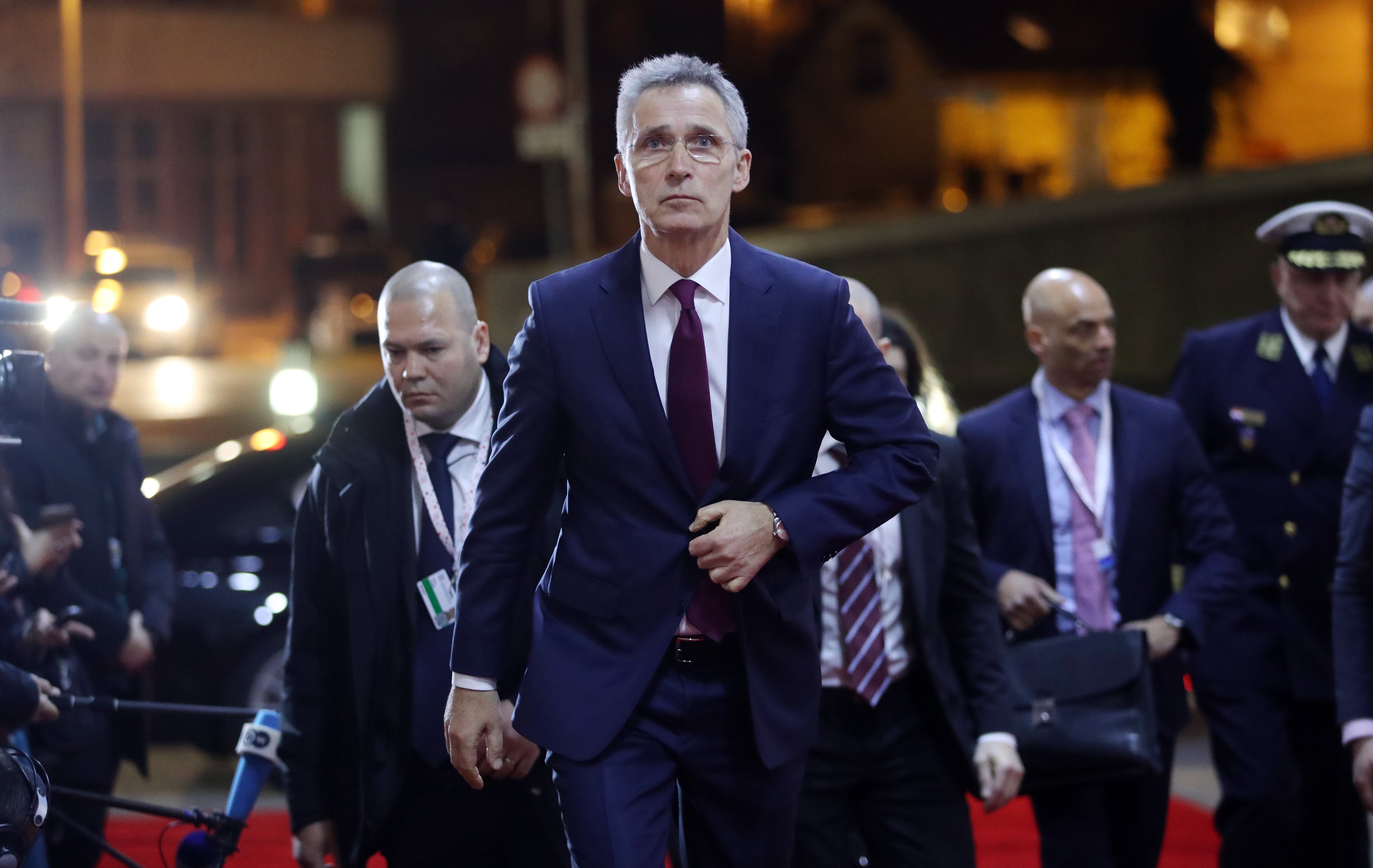WASHINGTON — After three months of silence on who would make up his administration’s top Pentagon leaders, President Joe Biden announced the names of 17 potential officials in April.
Of those, four will be critical in deciding how the Pentagon will modernize and how it will transition to focus on China in an era of relatively constrained spending.
On April 2, the White House announced Mike Brown, the head of the department’s commercial technology incubator, the Defense Innovation Unit, as the nominee to lead the acquisition and sustainment office. Ten days later, the administration selected former Under Secretary of Defense for Policy Christine Wormuth as the nominee for Army secretary — the first woman to be nominated for that position.
Then on April 27, Biden announced Frank Kendall, a former undersecretary of defense for acquisition, technology and logistics, as his Air Force secretary pick, as well as Heidi Shyu, the former top Army acquisition official, as his nominee to lead the Pentagon’s research and engineering office. Biden’s pick for Navy secretary was not announced by press time, but Carlos Del Toro, a Cuban-born veteran of the U.S. Navy and the CEO of SBG Technology Solutions, is thought to be a leading contender.
“All four are highly experienced and accomplished, Pentagon savvy, deeply schooled on policy and technology, respected in the Congress and industry,” said Arnold Punaro, a former Senate Armed Services Committee staff director and chairman of the board of the National Defense Industrial Association. He added that the four “will be powerful leaders” working with Defense Secretary Lloyd Austin and Deputy Secretary Kathleen Hicks.
At a time when the Department of Defense faces flat budgets and internal fights over programs, if confirmed, these four will play a significant role in developing the service’s acquisition budgets.
They bring with them years of experience from dealing with the Pentagon’s acquisition system and extensive knowledge from industry, but also have the scars from programs gone wrong and occasionally tense relationships with lawmakers.
As the group heads into confirmation hearings in the next month, here’s how industry observers expect they will approach critical national security issues.
Michael Brown
Brown, a former CEO of cybersecurity firm Symantec, joined the DoD in September 2018 to lead DIU, a small office dedicated to increasing ties between the department and commercial technology firms. The rare Trump administration appointee to be kept on and promoted by the Biden team, Brown has gained a reputation in Congress as a China hawk thanks to his co-authorship of a departmental report that warned Beijing is actively trying to buy into the defense supply chain.
Sources say expect Brown to continue the focus from DIU on connecting commercial, nontraditional defense firms with the defense-industrial base.
Byron Callan, an analyst with Capital Alpha Partners, wrote in a note to investors that he is “intrigued to see how [Brown] may assess incentives for contractors.”
“Brown may focus more intensively on acquisition outputs instead of focusing on processes and rules to limit cost overruns and schedule slippage,” Callan wrote.

Former Rep. Mac Thornberry, who served as chairman and ranking member of the House Armed Services Committee until his retirement in January, said he is “optimistic” Brown will flourish within the acquisition and sustainment office, in large part because of how DIU evolved under his watch.
“He did a lot of good at DIU,” Thornberry told Defense News. “Part of it was the maturation of the organization; part of it was him and his efforts. But he took DIU to a new, higher level of getting technologies they identified into places at DoD where the technologies could be advanced, incorporated and sustained.”
One former acquisition official called the Brown pick a “great choice,” citing in particular Brown’s understanding of China’s industrial and technological investments. The official also suggested Brown may have “thoughtful” ways of approaching the defense industry, given he was chief executive of a publicly traded company.
Among the major tasks facing Brown, per the former official: keeping the COVID-19 task force and related Defense Procurement Act on track; managing the relationship between the offices of acquisition and sustainment and of research and engineering; continuing procurement reform efforts left over from his predecessor Ellen Lord; and navigating the acquisition relationships among the military branches at a time when budget pressure is expected to drive interservice battles.
One potential landmine for Brown: In April, Defense One reported that a former DIU official filed a complaint with the DoD inspector general about Brown’s hiring practices, claiming his team improperly hired individuals and that DIU altered contracts to award bonus funds to specific employees at some companies.
As of publication, the IG had not decided whether to launch a formal investigation, but it is likely the issue will surface during the confirmation process.
Frank Kendall
Since leaving the Pentagon in 2017, Kendall has remained a fixture in the defense world, often weighing in on defense acquisition topics in the press. However, he has said little about the major issues facing the Air Force, and he declined to comment for this article.
In November, he told Government Matters that a Biden administration would bring about “less radical change” than some industry officials anticipated, adding that he predicts “a strong desire to benefit the American economy” as well as to work more closely with partner nations.
With defense budgets projected to stay flat, Air Force Chief of Staff Gen. CQ Brown has made clear the service must divest portions of its legacy fleet to free up funding for investments in advanced technologies to outmatch China.
If confirmed, Kendall could become a vocal advocate for sweeping changes to the service’s force structure, as well as an intermediary with lawmakers seeking to understand the Air Force’s goals.
“I feel like I’ve been to this movie before,” said former Air Force Secretary Deborah Lee James, who was the service’s top civilian from 2013 to 2017. During her tenure, the service unsuccessfully attempted to retire the A-10 Warthog aircraft, U-2 spy plane and RQ-4 Global Hawk surveillance drone.
“I can’t imagine they’ll pick the same systems to try to retire, but there will be the same dynamics and the same questions, and communications will have to be very intense,” she told Defense News.

Thornberry, who spearheaded acquisition reforms in Congress as Kendall implemented his own set of “Better Buying Power” policies aimed at making the weapons buying process more agile, said he thinks highly of Kendall, but noted that at times he was resistant to changes Congress wanted to make to the Pentagon’s acquisition structure.
“My impression was he’d have preferred Congress stayed out of it and left it to them. So there was a little — I don’t want to say ‘tension,’ but [it was] that sort of feeling when we were looking at and doing some acquisition reforms,” Thornberry said. “But I think he’s smart … and understands technology, which is really important for the Air Force moving forward.”
One major budgetary question is whether Kendall will support a cut to the service’s planned buy of 1,763 F-35As, which could occur as the result of an ongoing Air Force study on the makeup of its fighter inventory.
As the Pentagon’s acquisition czar, Kendall oversaw the F-35 program shortly after it was re-baselined due to massive cost overruns, when the aircraft was beset by a series of technical challenges. He famously said in 2012 that the decision to conduct development and production efforts concurrently amounted to “acquisition malpractice.”
He was more optimistic about the F-35 program by the end of his tenure, telling lawmakers in April 2016 that it “is no longer a program that keeps me up at night,” though he pointed to sustainment costs as an incoming challenge for his successor.
As Air Force secretary, Kendall may be more supportive of the F-35 program after speaking to pilots who have used it in combat operations, said David Deptula, dean of the Mitchell Institute for Aerospace Studies and a former Air Force three-star general.

“He’ll probably have his eyes opened in the context of how the users of this aircraft view it in terms of the capabilities it brings,” he said. “For too long there’s been almost a sole focus on cost and input metrics like cost per flying hour, which have nothing to do with combat effectiveness. I think he’ll get a better feel for the capabilities that the aircraft brings, not just to the Air Force but the Department of the Defense writ large.”
Another key issue will be whether the Biden administration decides to make cuts to the nuclear triad — especially the Air Force’s Ground Based Strategic Deterrent program, which is expected to replace legacy Minuteman III intercontinental ballistic missiles and could cost more than $260 billion.
“We expect him to support continued fielding of a triad, but open issues remain where he could weigh in on another Minuteman III upgrade that would defer the GBSD fielding,” as well as the number of missiles ultimately procured during the program, Callan wrote in an April 27 note to investors.
Kendall could also play a key role advocating for the Air Force to receive a larger share of the budget, as well as combatting Army efforts to “encroach” on the Air Force’s long-range strike mission by fielding a family of developmental long-range fires, Deptula said.
Kendall will step into the position knowing how to navigate the Pentagon’s byzantine processes, having already established the connections needed to garner support for new policies, James said.
But his success as the Air Force’s top civilian will depend on his ability to focus on the entirety of the job — including issues such as climate change, combatting sexual assault and addressing extremism in the Air Force’s ranks — and not just the task of modernizing the service.
“He’s got to collaborate with the new undersecretary for acquisition, but not do that job, not try to micromanage things which are not within his purview,” James said, adding that Kendall’s background as a human rights lawyer shows he can tackle sensitive personnel issues.
“He’s a technologist, he’s an analyst, but he has a heart.”
Heidi Shyu
An engineer by trade, Shyu served as the Army’s top acquisition official from Sept. 21, 2012, to Jan. 31, 2016. Shyu spent significant parts of her career with Raytheon, where she worked on programs that will be relevant to her new position: unmanned, space and electronic warfare programs. She ended her Raytheon career in 2010 as vice president of technology strategy for the Space and Airborne Systems business unit.
During her four-year stretch at the Army, Shyu was a staunch protector of research and development investments in the Future Vertical Lift and the Improved Turbine Engine programs. She oversaw the Joint Light Tactical Vehicle contract award and its subsequent protest.
Shyu was also in the Pentagon when Lockheed Martin purchased Sikorsky; although she would not have had final say on whether the DoD signed off on the deal, she undoubtedly weighed in, given the importance of the helicopter maker to the Army.
Shyu often equated defense acquisition to a bus where every passenger, or stakeholder, has a brake and a steering wheel. Her point was to stress that each has an agenda, and they might not align with program goals. With everyone on the bus trying to drive, inevitably the bus “flips over” and the program is derailed, she once said at a Senate Armed Services Committee hearing.
Similarly, she was a vocal proponent of allowing program managers more autonomy, both with budgets and requirements, saying: “We were just beating the crap out of the [program manager] while everybody else has the steering wheel and a brake. … You can spend your time managing the program or can spend your time filling out the documents.”
Callan noted that since leaving the Pentagon, Shyu served as a board member or adviser to several startups and nontraditional defense companies, including Roboteam North America, VK Integrated Systems, Auterion Government Solutions and Levitate Capital. Given that the office of research and engineering is in charge of developing cutting-edge capabilities, that experience may give her insight into what is happening in the commercial sector.
Christine Wormuth
After a series of roles in the department, Wormuth served as undersecretary of defense for policy from 2014 to 2016 before leaving to lead the International Security and Defense Policy Center at the think tank Rand. She was expected to land a top job under the Biden administration, as she was on his Pentagon transition team after the election and ran the team after Kathleen Hicks was announced as the deputy defense secretary nominee.
If confirmed as Army secretary, she will take on a service in flux. The last several years set into motion an ambitious modernization strategy, including standing up Army Futures Command and aligning the service around the Multi-Domain Operations concept. The service also finds itself facing calls for its budget to shrink in favor of the Navy and Air Force as part of a move to blunt China’s influence in the Asia-Pacific region. This has lead to Army leadership pivoting toward technologies and policies relevant to the region.
“If there is anything Christine is a genius at, it’s seeing the bigger picture and figuring out how all the piece parts should interact to get the job done,” according to a source familiar with Wormuth, who spoke on condition of anonymity given sensitivities around the nomination process.
“She’ll work to make the Army as relevant as possible to the current and future fight — but within reason. She’ll respect the tension between advocating for the service and being realistic about, for example, what it should be reasonably asked to provide in the Indo-Pacific,” the source added. “Bottom line: She won’t try to force the [defense secretary] or [the president] to pay the Army to do something another service could do better, but she also won’t stand for another service elbowing the Army out of a role that it should own. "

John Hamre, president and CEO of the Center for Strategic and International Studies, hired Wormuth in 2006. He said she “has a personality of openness and bringing people in and making them partners in the effort. She’s a thoughtful and reasoned individual, and she leads with ideas, not with muscle.”
While at Rand, Wormuth largely stayed behind the scenes by limiting her public statements. But while in office, she was a regular attendee of D.C. events, which provides some insight into how she might approach the Army secretary job.
Wormuth has expressed a hawkish tone toward Russia and a desire to push NATO allies on the target to spend 2 percent gross domestic product on defense — with the caveat that money be invested wisely, not just for the sake of reaching the goal.
She has a previous relationship with Austin, having worked alongside him when she was policy undersecretary and he ran U.S. Central Command. The two appeared together at an infamous 2015 hearing in which Austin stated U.S. efforts had trained only “four or five” fighters to fight the Islamic State group in Syria.
During the 2014 Quadrennial Defense Review, a now-defunct Pentagon-wide capabilities assessment, Wormuth vocalized her take on how to manage the budget, saying in 2014 that if Congress won’t allow either a base realignment and closure effort or major internal reforms, cuts would have to be found internally for the department.
Along those lines, Wormuth supported the Army aviation restructure effort of 2014, which in part helped preserve funding to lay the groundwork for one of the service’s current major modernization priorities, the future vertical lift effort. She also showed support for growing the homeland defense system, including increasing the number of ground-based interceptors.
At the 2019 West Coast Aerospace Forum, Wormuth raised the idea that the next-generation ICBM program could somehow include a road-mobile variant; while not leaning one way or another, Wormuth described that as a debate that should happen. She also called for extending the New START nuclear pact, which has since happened.
Reporting by Aaron Mehta, Valerie Insinna, Joe Gould and Jen Judson.




